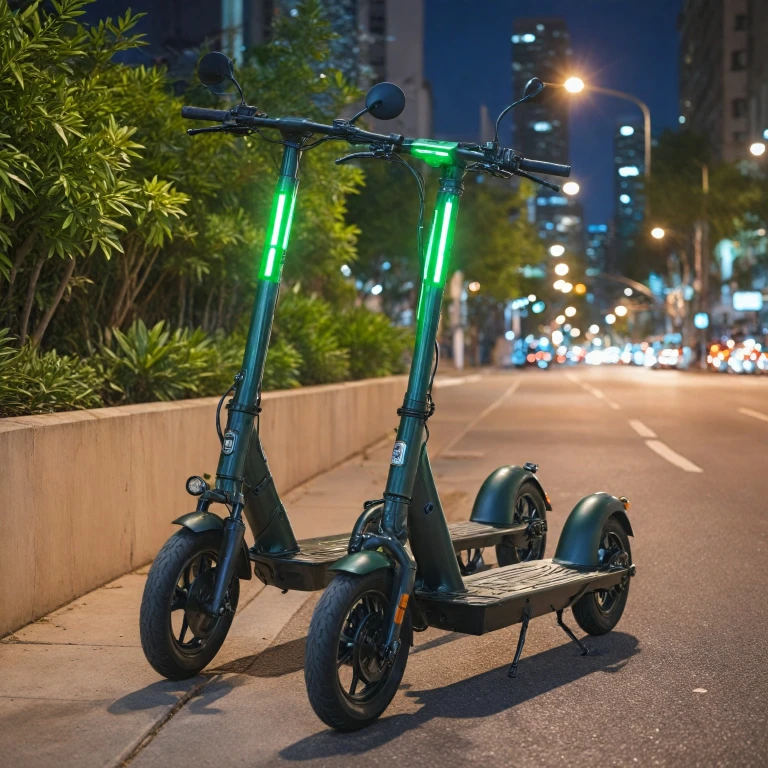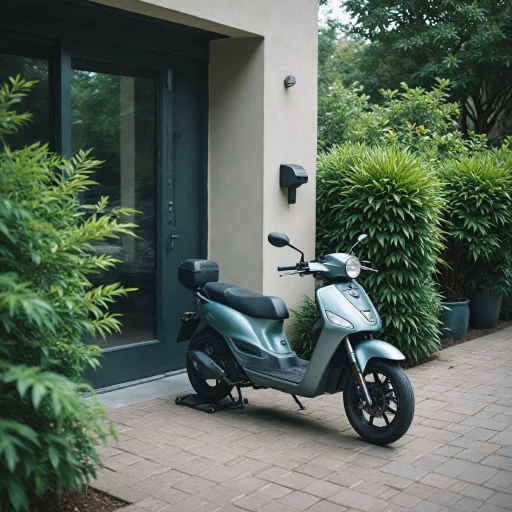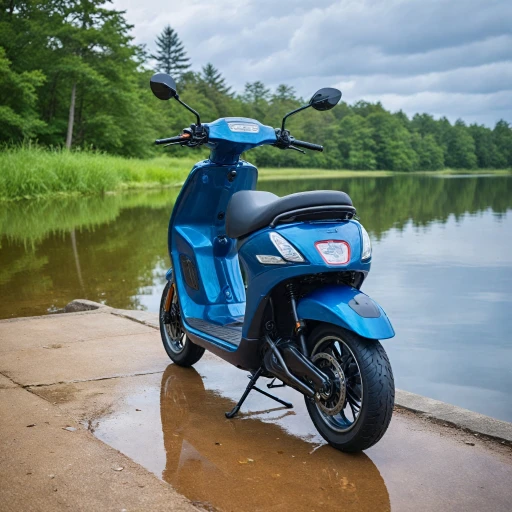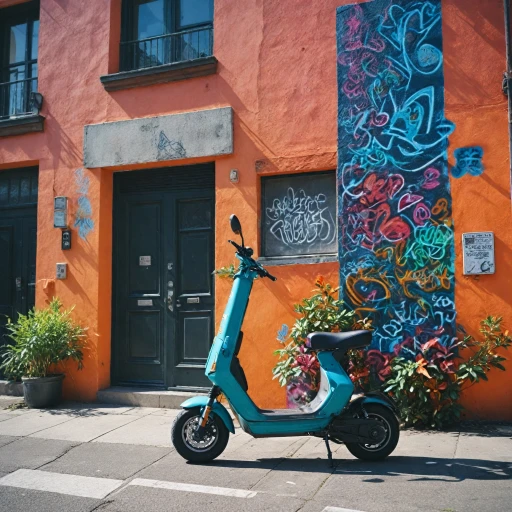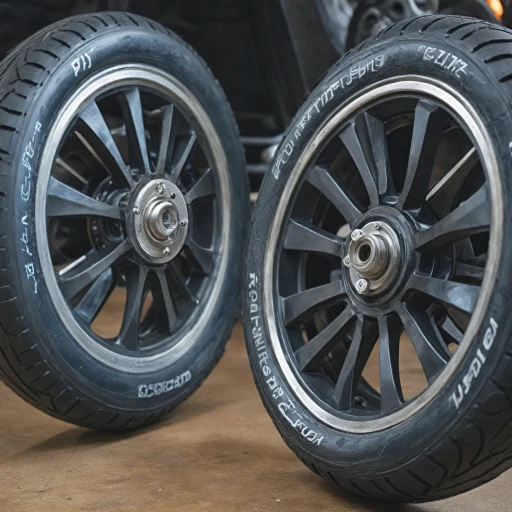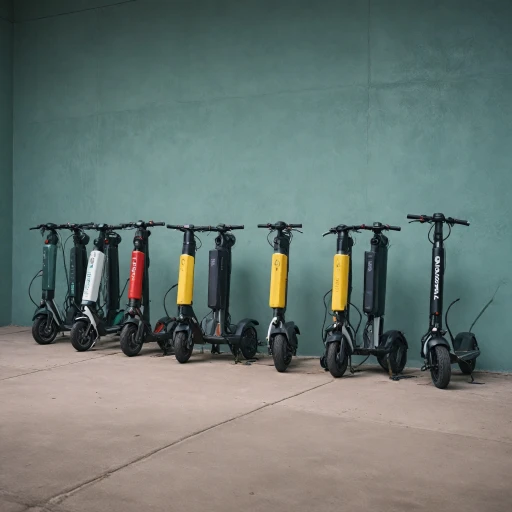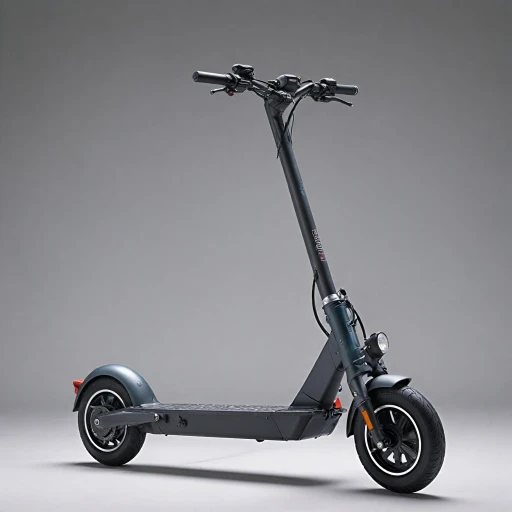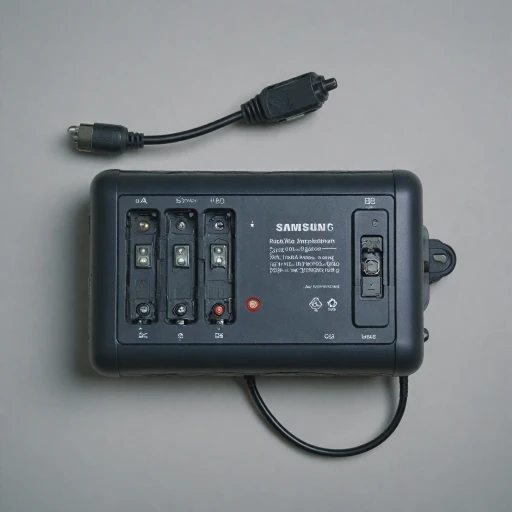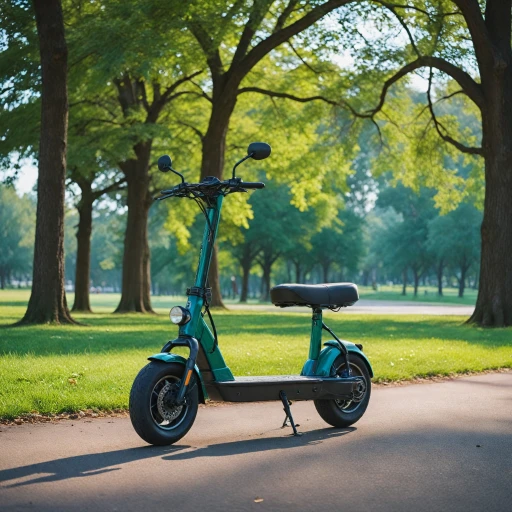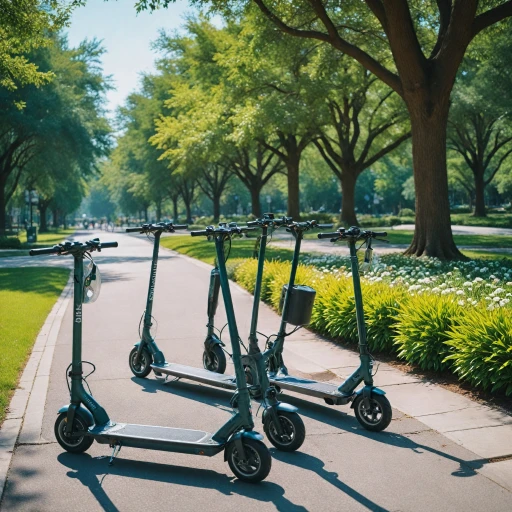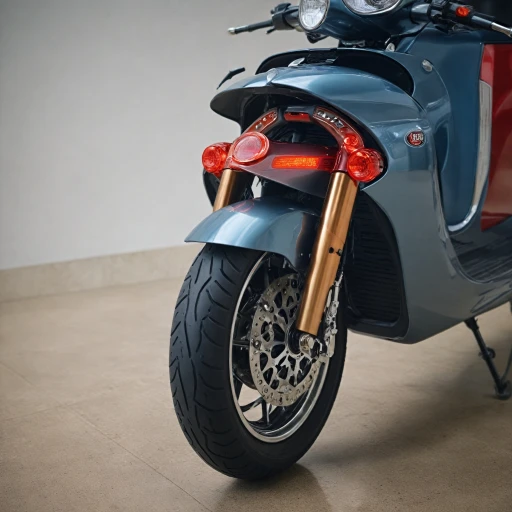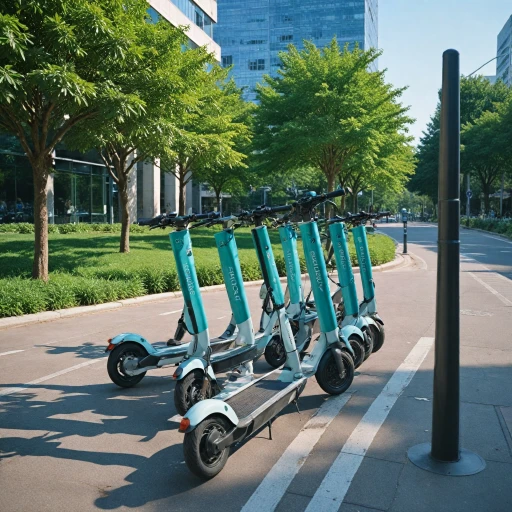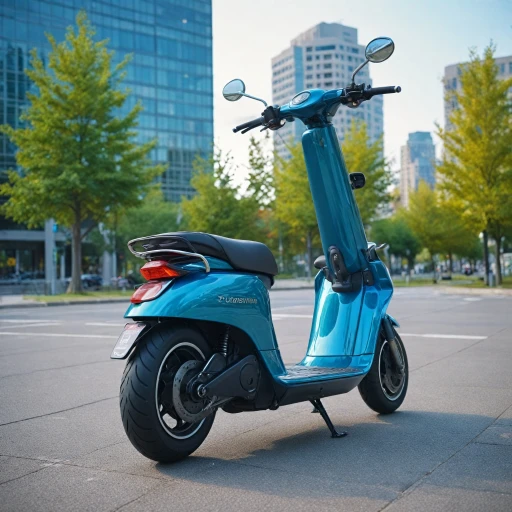The Basics of Electric Scooter Batteries
Understanding How Electric Scooter Batteries Work
Electric scooters are becoming increasingly popular due to their convenient and eco-friendly nature. At the heart of these vehicles lies the battery, a crucial component that powers them. Electric scooter batteries come in several forms, each offering different levels of performance and longevity. One common type is the lithium-ion battery, known for its light weight and efficiency. Brands like Mighty Max and ExpertPower offer these battery packs which provide a competitive range and are often sold with options for free shipping, making them appealing despite a higher regular price tag. Additionally, lithium batteries generally have a longer lifespan compared to traditional lead acid batteries, which were more commonly used in earlier scooter models. On the other hand, lead acid batteries, while more affordable, tend to be heavier and have a shorter lifespan. This can affect the scooter's overall weight in lbs and its ability to maintain a consistent power output over time. While they can still be found in some budget models, most modern electric scooters have switched to lighter and more efficient battery packs to improve performance and efficiency. Understanding the differences between these battery types is essential for anyone looking to invest in an electric scooter. The initial price might vary significantly, but considering the long-term performance and reliability can lead to better satisfaction and potentially lower maintenance costs. Additionally, knowing the signs of a failing battery, as explored in a later section, can help in timely replacements, ensuring your scooter always performs at its best.Different Types of Batteries Used in Electric Scooters
Exploring Battery Varieties
Electric scooters owe their versatility and efficiency largely to the type of batteries used within them. One predominant type is the lead acid battery, typically favored for its affordability. While providing good power for a lower price, lead acid batteries are heavier, often affecting the scooter's range and overall agility. As for their weight lbs, they are on the heavier side compared to their counterparts.
The spotlight in the electric vehicle industry today is mostly on lithium-ion batteries. These batteries dominate the market for a few compelling reasons. They offer greater power, longer life, and are significantly lighter, boosting the scooter's overall performance and maneuverability. Products like the mighty max and expertpower are popular examples that are sold broadly, often with free shipping.
Another contender is the lithium iron phosphate battery, which is gaining traction due to its promising longevity and stability. While a bit pricier than ordinary batteries, the price sale often compensates for its lasting benefits.
Several electric scooter brands have also started investing in innovative hybrid designs, combining different battery technologies into one robust battery pack. While these battery packs can be expensive, the investment is worth it for those seeking increased range and performance. Products like the ytx battery pack demonstrate this approach.
Overall, the choice of a battery greatly influences a scooter's performance and price regular, so consumers should consider factors such as their intended use, budget, and even the environmental impact before investing in a scooter.
Maximizing Battery Life and Performance
Extending the Lifespan of Your Electric Scooter's Power Source
When it comes to electric scooters, understanding how to maximize the endurance of your battery can make a significant difference not only in terms of performance but also in saving costs on a potential battery replacement. Everyone loves the thrill of a long ride without the anxiety of a dwindling power pack. Here’s how you can keep that battery mighty. Firstly, always start with a high-quality battery pack designed specifically for electric scooters. Brands like Mighty Max and ExpertPower provide durable and reliable options. If you’re in the market, keep an eye out for words like ‘lithium’ and ‘ion’—these state-of-the-art materials often mean a longer battery life compared to traditional lead acid. Practical Tips for Battery Longevity:- Regular Charging: Ensure your scooter battery remains around 20-80% charged. Avoid letting the charge drop to zero, as this can reduce the battery’s total lifespan.
- Environment Considerations: Store and charge your scooter in a cool, dry place. Extreme temperatures can degrade battery performance.
- Minimal Overcharging: Once fully charged, unplug it. Continuous charging can lead to swelling and reduce effectiveness.
Signs of a Failing Battery and When to Replace It
Identifying Battery Woes and Knowing When It's Time for a Change
Electric scooters offer an efficient and eco-friendly mode of transport, but their battery can signal when it’s time for a switch. Recognizing these signs is vital for maintaining consistent performance and extending the scooter’s life. Let's explore some indications of a failing battery and the appropriate steps to remedy the issue.
A decline in the scooter's range is often the first indication. If your the electric scooter once boasted a far-reaching range that now diminishes significantly, this can suggest a battery not holding as much charge as before. The battery pack might need a refresh or replacement if your usual routes require more frequent recharges.
Another indicator of battery failure is inconsistent power output. Sudden loss of power or frequent sudden stops might mean it’s time to evaluate the battery status. This issue is commonly associated with batteries that have reached the end of their efficient service span.
Also, observe the physical state of your battery. Bulging, leaks, or unusual weight lbs changes can signal internal issues, necessitating immediate attention to prevent further damage to the electric scooter or potential safety hazards.
Lastly, age plays a crucial role. Most lithium-ion scooter batteries and lead acid variants have specific life spans. If the battery replaces ytx and exceeds its expected duration, the regular price of maintaining an old battery may become counterproductive.
Expert opinion suggests being proactive about battery replacement. Engaging with professional services can ensure you select the right battery, whether it's from a reliable brand like mighty max or a price sale from an expertpower supplier.
Timely battery replacement not only saves on the long-term regular cost but also ensures your electric scooters continue operating smoothly and effectively until you decide to invest in a new model, where batteries sold often come with their own advantages brought by technological advancements.
The Environmental Impact of Scooter Batteries
Environmental Impact of Electric Scooter Batteries
The surge in popularity of electric scooters has inevitably led to a focus on their environmental footprint. One of the most significant aspects of this discussion is the impact of the batteries that power these eco-friendly machines. As electric scooters gain traction in urban landscapes, understanding the environmental implications of their batteries becomes increasingly important. A critical factor is the type of battery used. Lead acid, lithium-ion, and the newer variants each have distinct environmental impacts. Lead acid batteries, for instance, are not as efficient and weigh more, affecting the scooter's weight lbs and overall range. While they are often cheaper and sold at a lower regular price, their disposal can be problematic due to the toxic materials they contain. Lithium-ion batteries, like those found in many modern electric scooters, are generally more environmentally friendly. They offer superior power output, greater efficiency, and a longer lifespan compared to lead acid alternatives. Companies like Mighty Max and ExpertPower are known for producing lithium-ion battery packs that offer these benefits. However, the mining and refining of lithium have raised environmental and ethical concerns. Battery recycling and disposal also play a central role in their environmental impact. Proper recycling of lithium batteries can help mitigate some environmental concerns, as it reduces the need for new raw materials and prevents hazardous substances from entering landfills. Many manufacturers now offer recycling initiatives, ensuring that batteries are disposed of responsibly. The environmental question also extends to the broader lifecycle of the battery electric scooters. While they emit fewer pollutants during use than conventional transportation methods, the initial production and eventual disposal phases contribute significantly to environmental impact. Innovations in battery technology and increased use of recycled materials could further reduce the ecological footprint of electric scooters. As cities continue to adopt sustainable transportation solutions, the spotlight on scooter batteries and their impact shines brighter. It's vital for all stakeholders, from manufacturers to end users, to remain informed about and engaged with efforts to lessen these impacts, ensuring that electric scooters remain a genuinely green option for urban mobility.The Future of Battery Technology in Electric Scooters
Advancements in Battery Technology
The future of electric scooters is heavily reliant on advancements in battery technology. As we delve deeper into understanding the power behind these scooters, it's clear that battery innovations are pivotal. Currently, lithium-ion batteries dominate the market due to their high energy density and efficiency. However, research is ongoing to develop even more powerful and sustainable options.
Emerging Technologies
New technologies such as solid-state batteries are being explored, promising to offer higher energy capacity and faster charging times. These batteries could potentially reduce the weight of electric scooters, making them more efficient and increasing their range. Brands like Mighty Max and ExpertPower are at the forefront, constantly pushing the boundaries of what's possible with battery packs.
Environmental Considerations
As discussed earlier, the environmental impact of scooter batteries is a significant concern. Future innovations aim to address this by creating batteries that are not only more efficient but also more environmentally friendly. Recycling and proper disposal of battery packs are becoming more integral to the production process, ensuring that the environmental footprint of electric scooters is minimized.
Market Trends and Pricing
The price of battery technology is expected to decrease as new advancements become mainstream. This will make electric scooters more accessible to a wider audience. The regular price of high-performance batteries might drop, offering more competitive sale prices and potentially even free shipping options for consumers. Brands are also focusing on creating versatile battery replacements that can be used across different scooter models, including popular ones like the Razor electric scooter.
Conclusion
In summary, the future of electric scooters is bright, with battery technology playing a crucial role in their evolution. As innovations continue to emerge, we can expect electric scooters to become more efficient, environmentally friendly, and affordable, reshaping urban transportation in the process.
